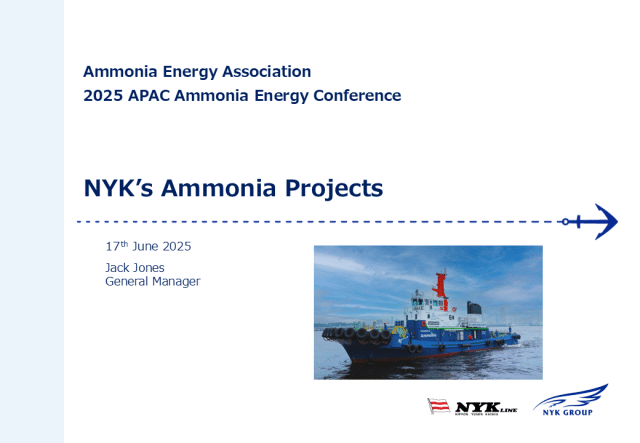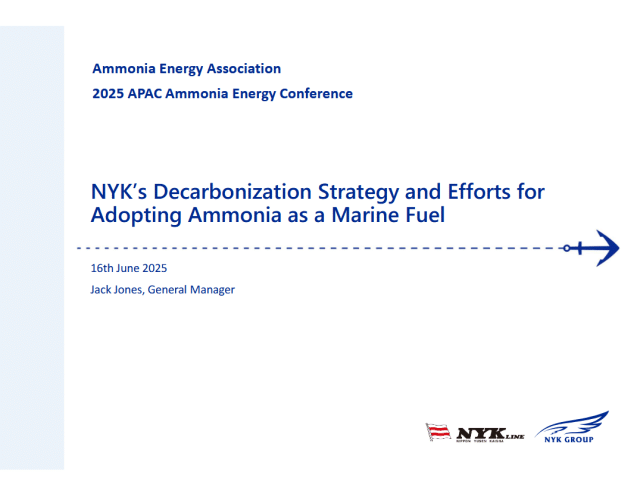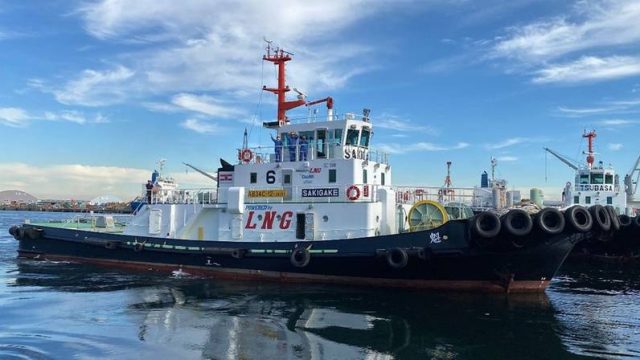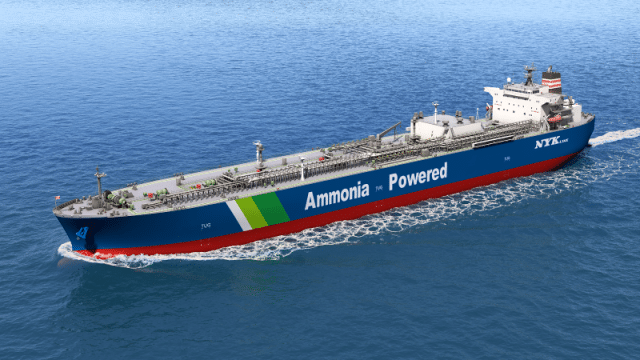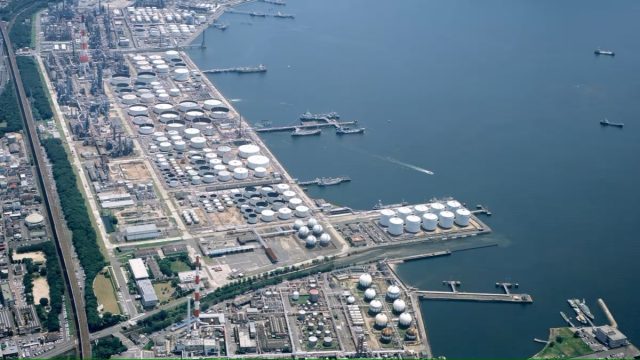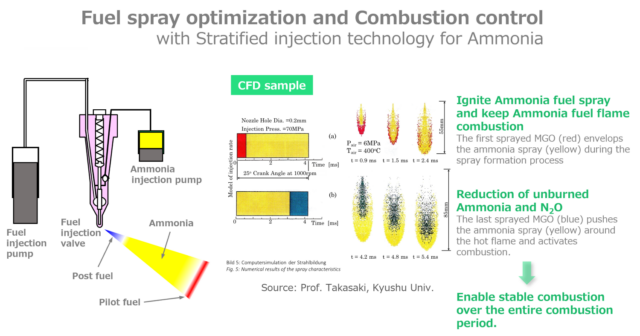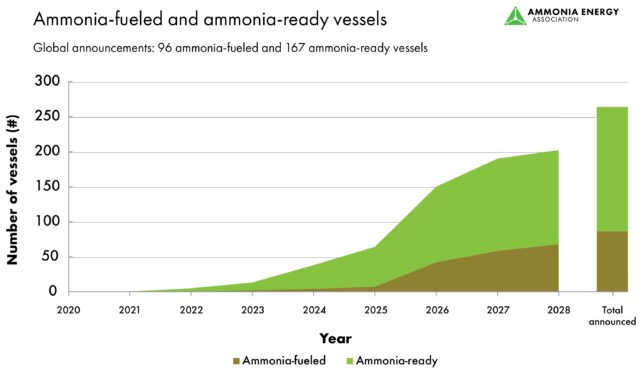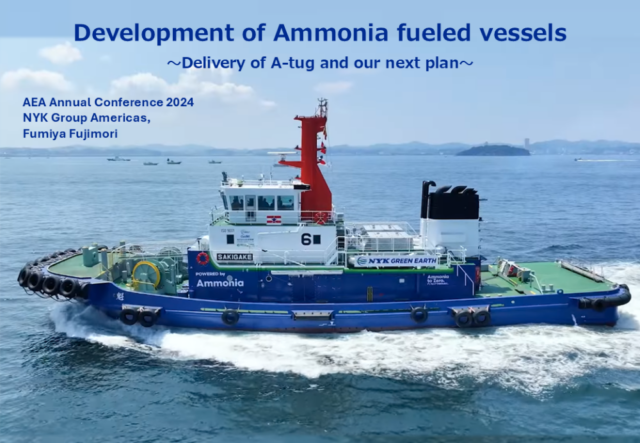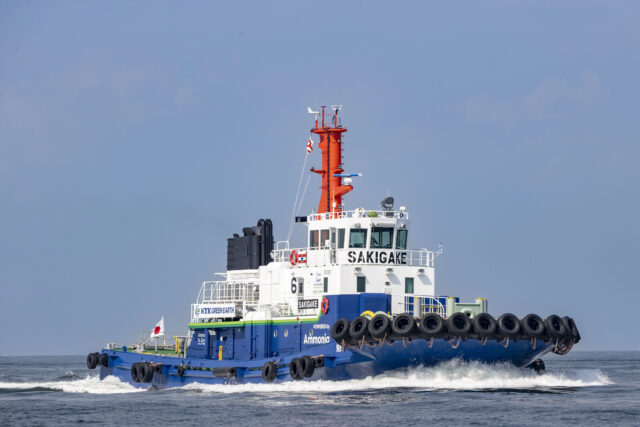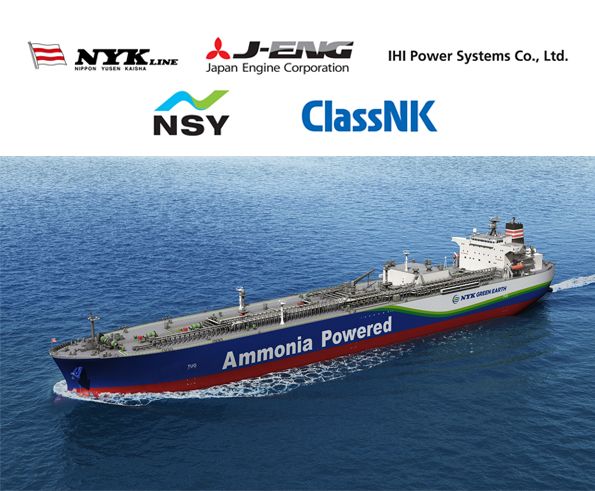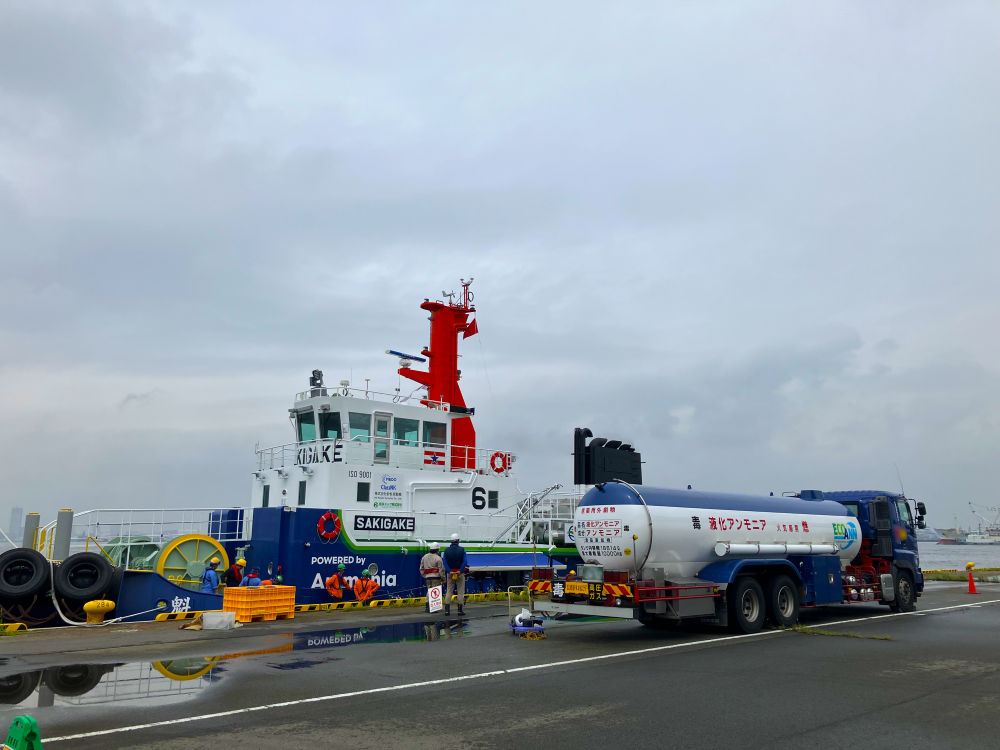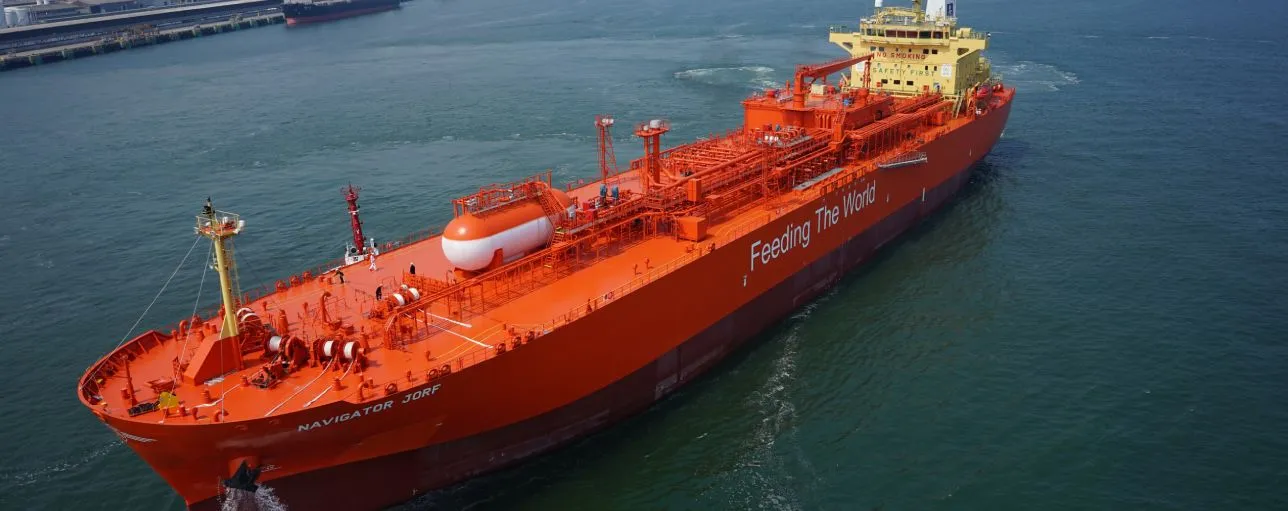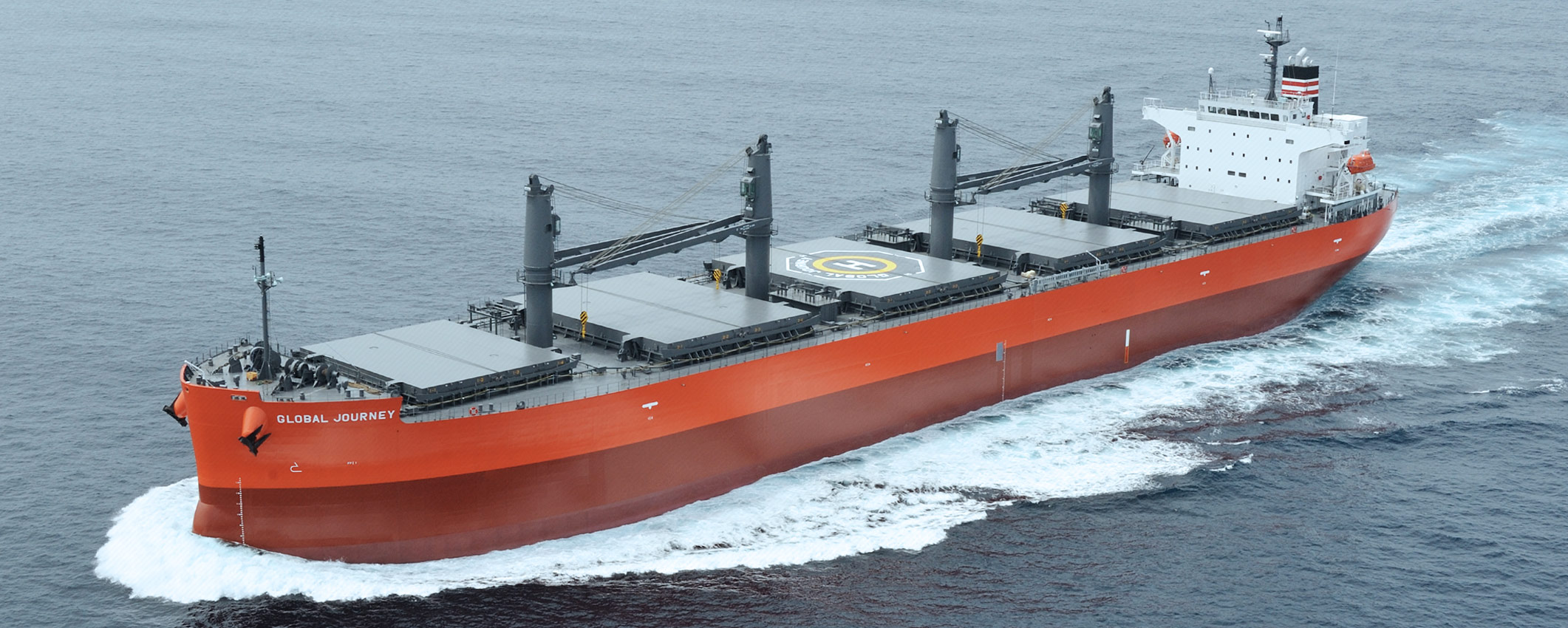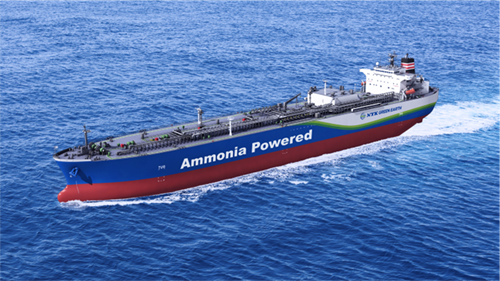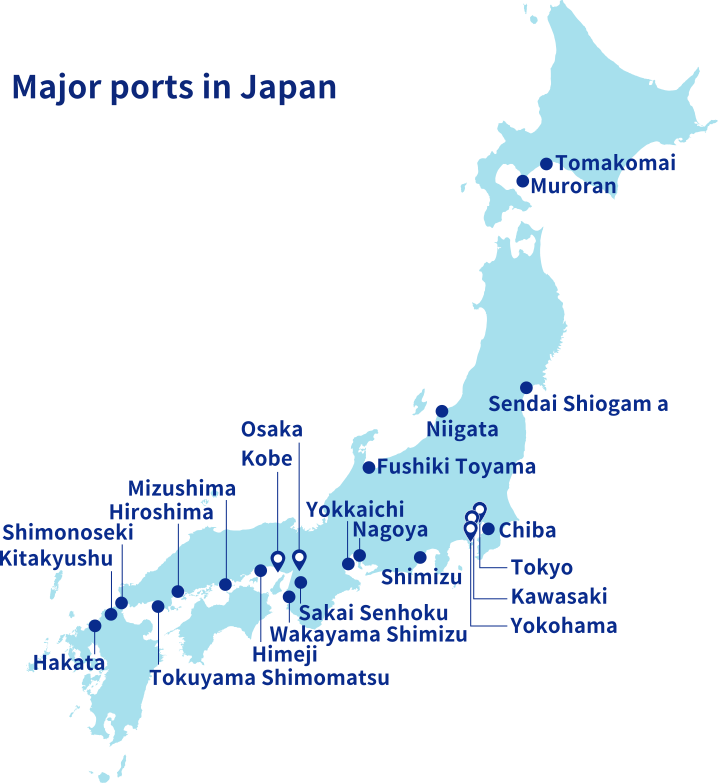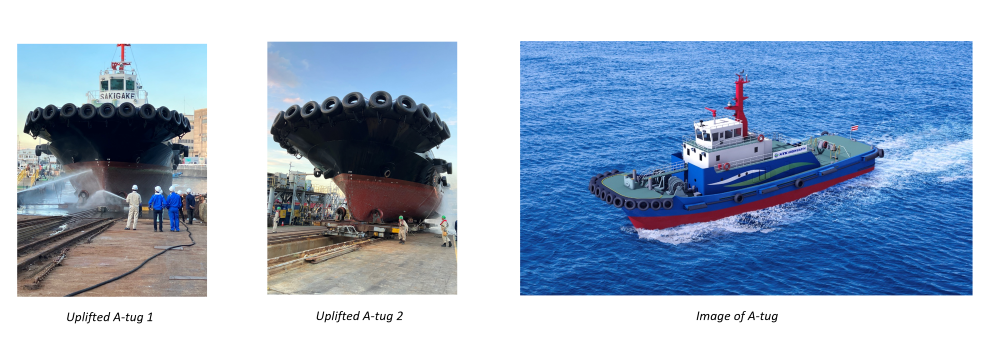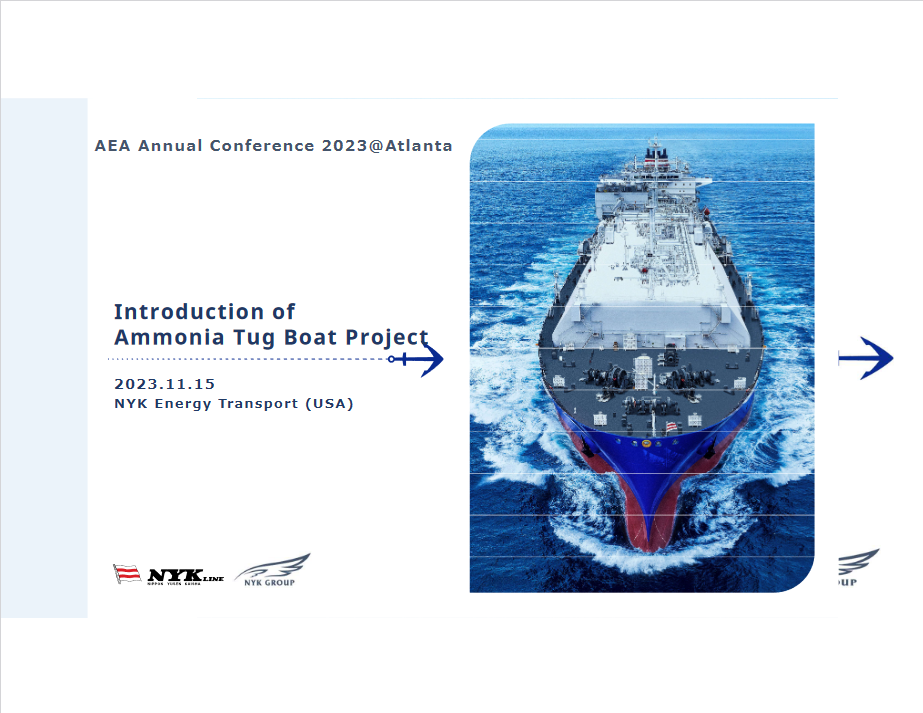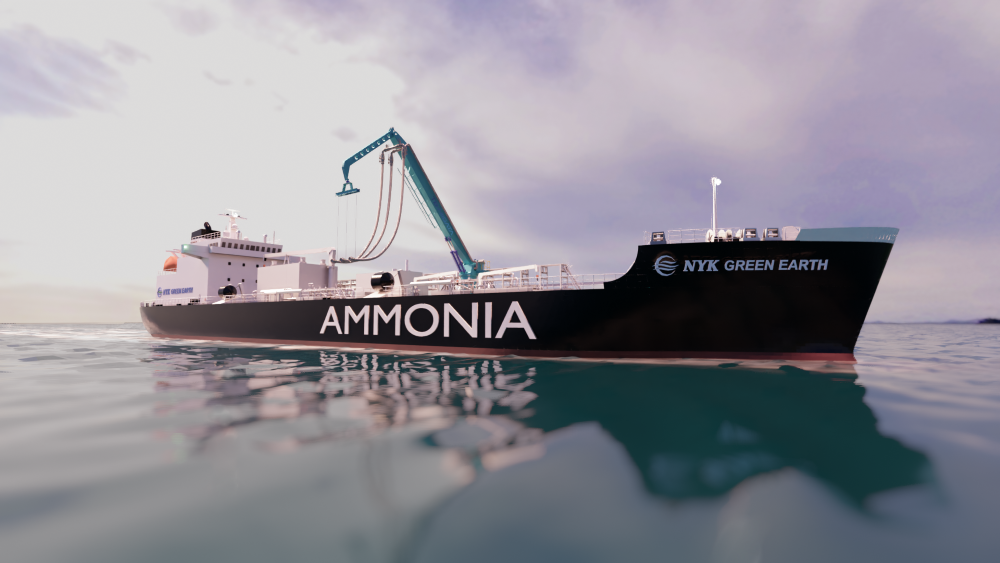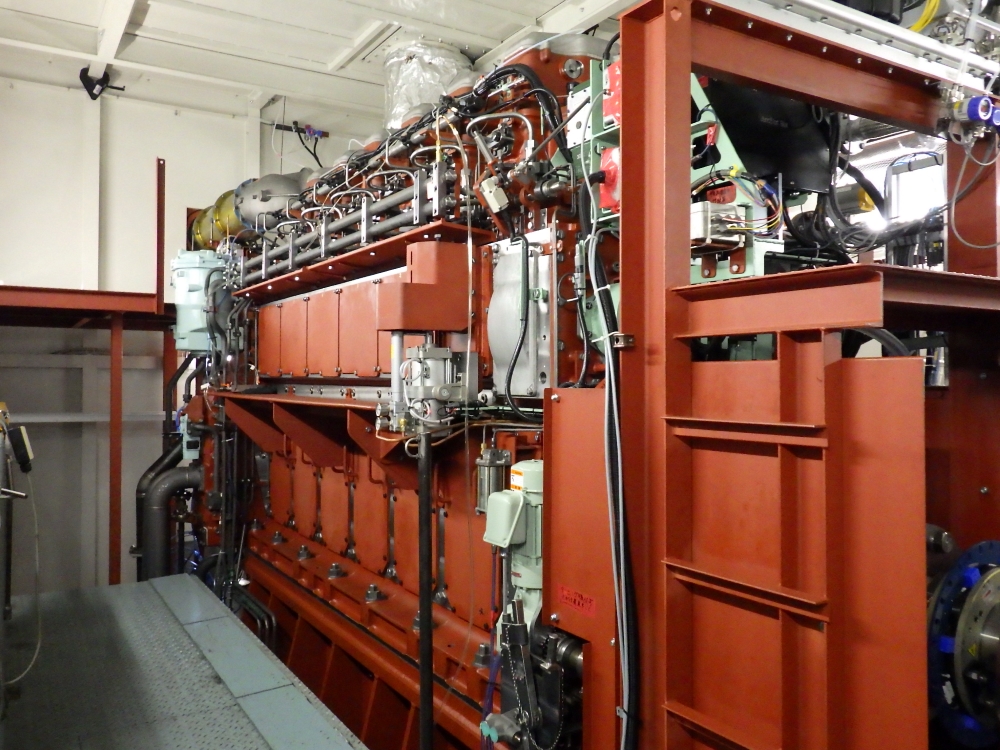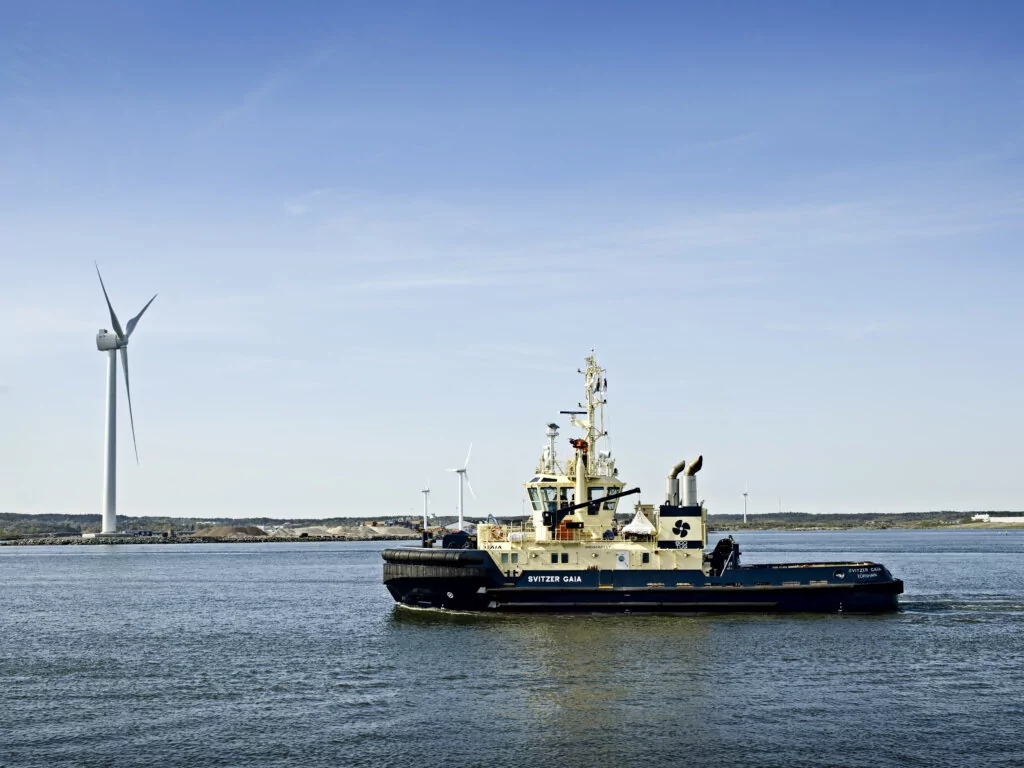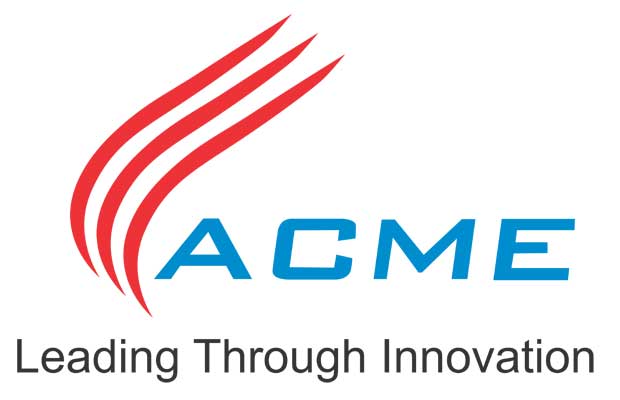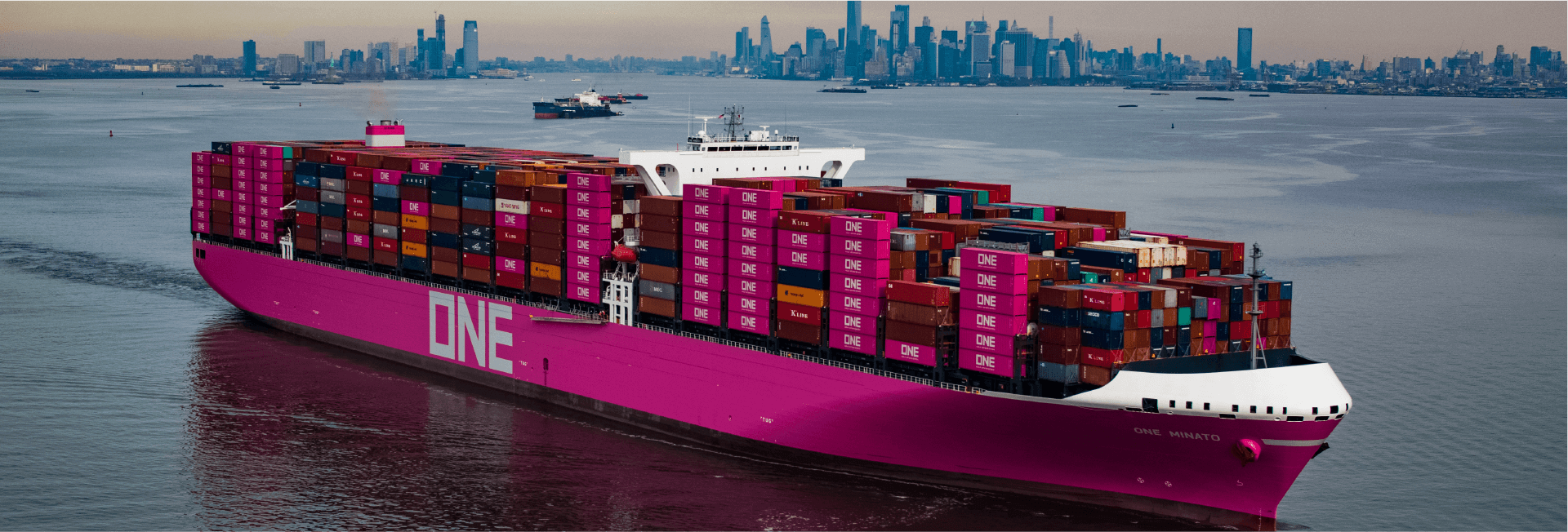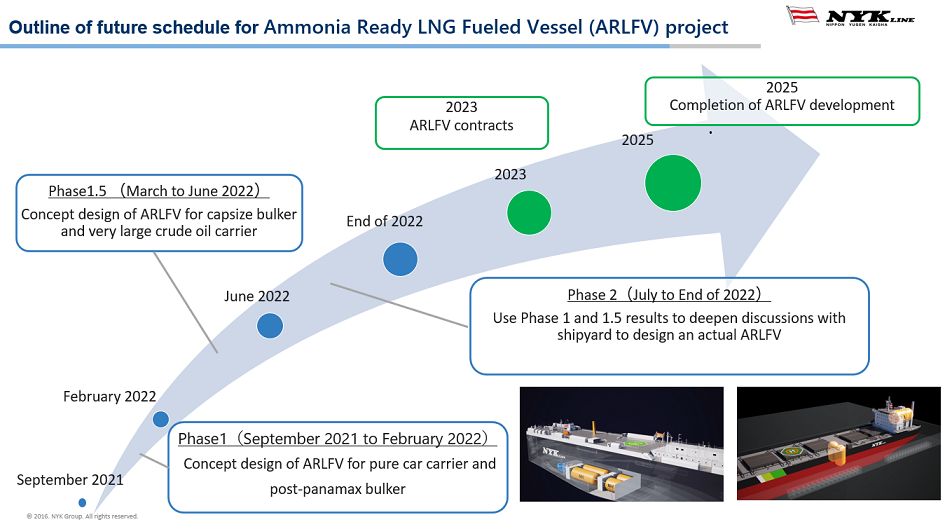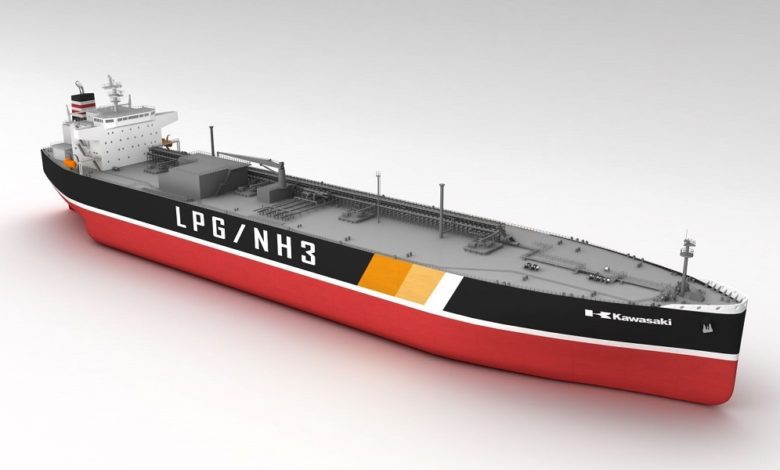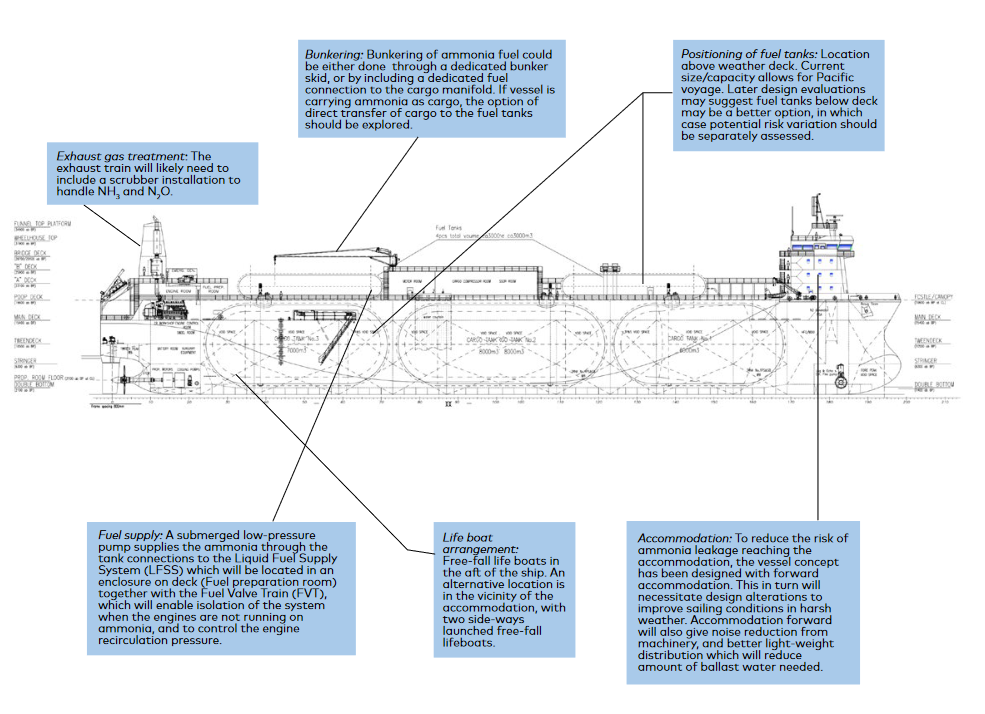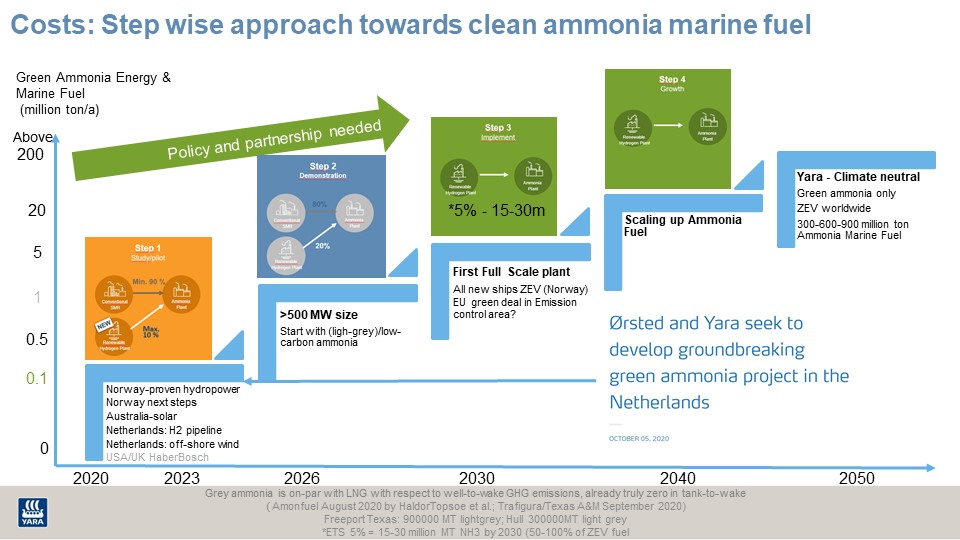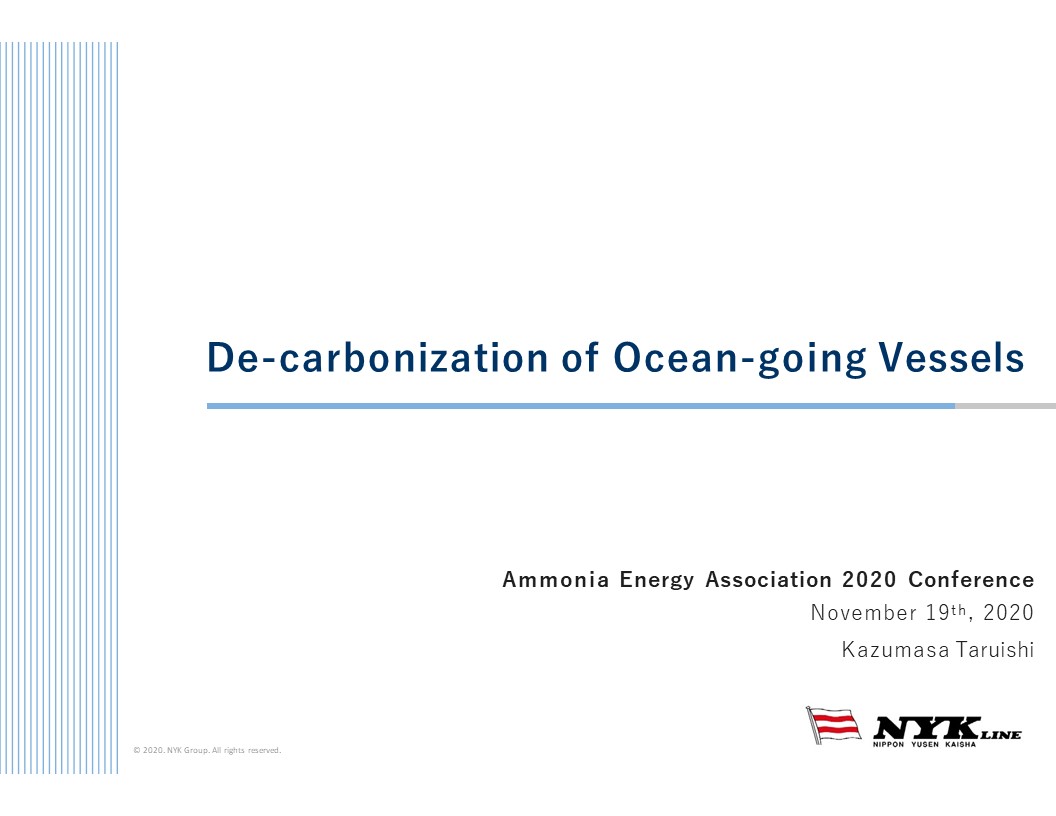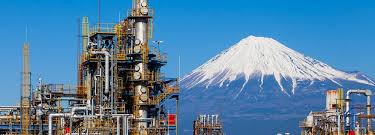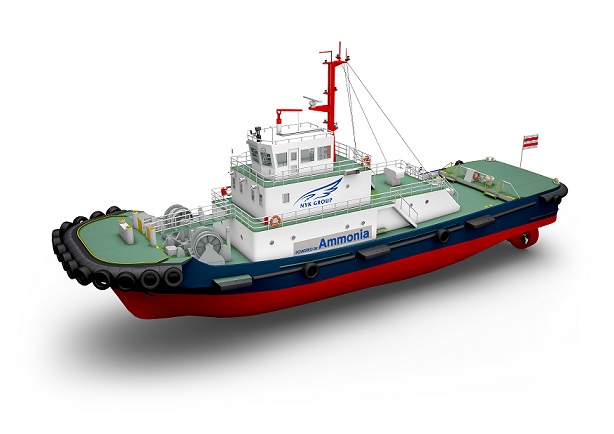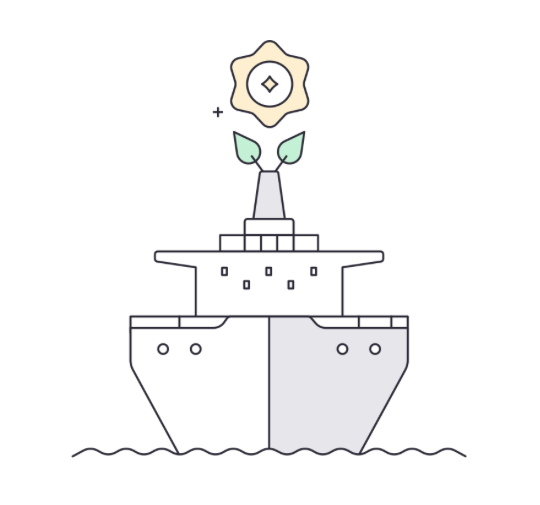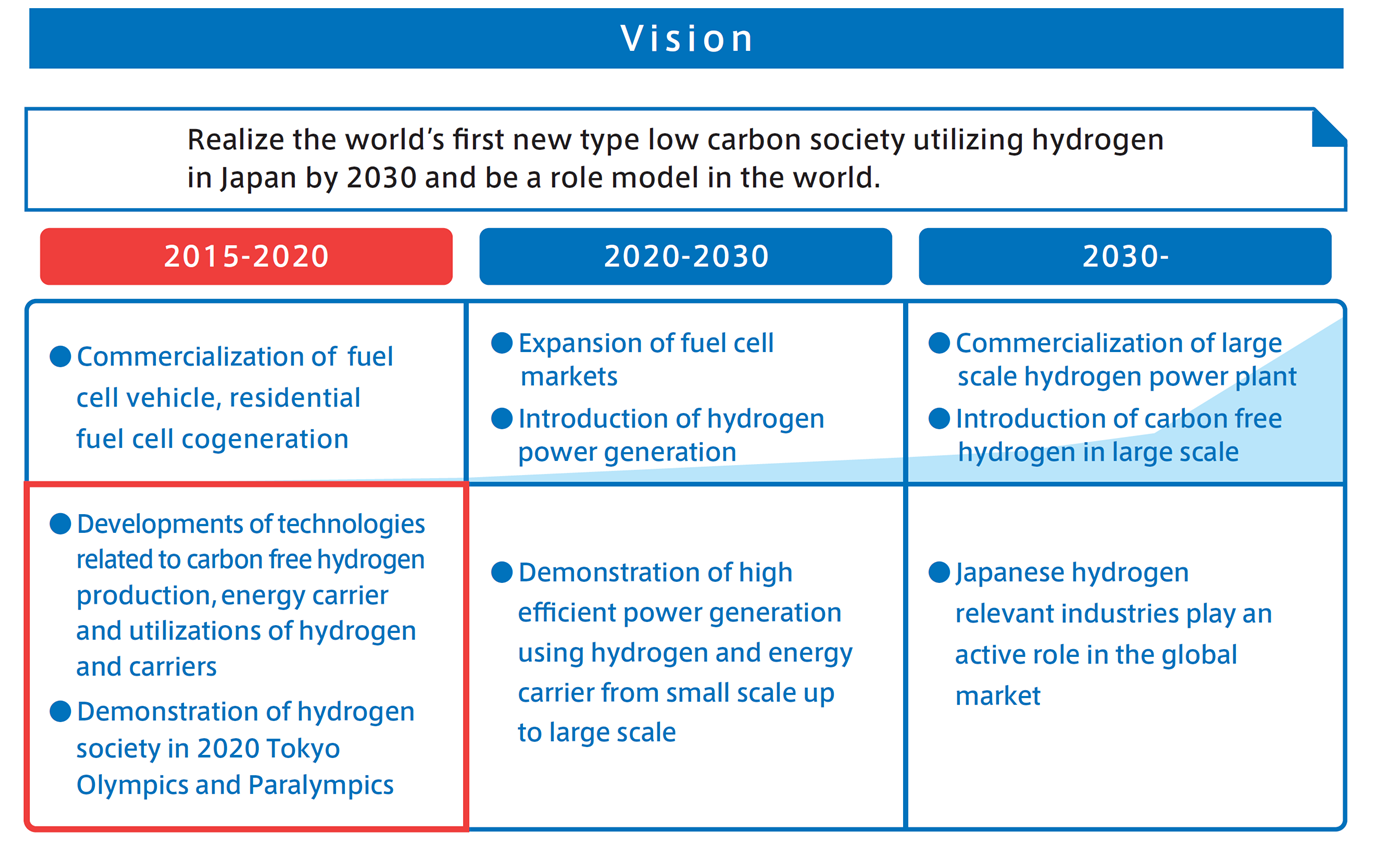An “entire cargo” of 23,000 tons of ammonia was transferred from NYK’s ammonia carrier Berlian Ekuator to Trammo’s ammonia carrier Eco Enchanted, operated by Trammo. This is NYK’s first STS operation using ammonia.
Content Related to NYK Group
Presentation
NYK’s Ammonia Projects
Here, we explore in-depth the modifications made onboard the tugboat Sakigake to transform it from Japan’s first LNG-fueled vessel into Japan’s first ammonia-fueled vessel. Technical specifications, design challenges and emission results from early operations are all included. We also explore progress in two other areas: the construction and deployment of an ammonia-fueled, medium-sized gas carrier, and ammonia bunkering (development of both a bunker boom and barge vessel).
Presentation
NYK’s decarbonization strategy and efforts for adopting ammonia as a marine fuel
NYK’s game plan for ammonia fuel adoption features four key elements: regulatory readiness, technical readiness, social acceptance, and economic efficiency. On the technical front, NYK is involved in a series of vessel and engine projects, including the delivered A-Tug Sakigake project, which we will explore in-depth later at this conference.
Article
Sakigake completes three months of operational demonstrations in Tokyo Bay
Julian Atchison April 10, 2025
Over the course of the demonstration, NYK analyzed the emission reductions achieved, with a peak of 94.4% reductions using 94.8% ammonia fuel under 75% engine load (similar results at 100% engine load).
Article
Yara and NYK: time-charter agreement for ammonia-fueled medium gas carrier
Geofrey Njovu March 11, 2025
Following a time-charter agreement between the two companies, NYK will deliver an ammonia-fueled medium gas carrier to Yara Clean Ammonia in November 2026.
Article
The view from Japan: 2025 shaping as a pivotal year for ammonia energy
Julian Atchison February 26, 2025
In 2025, the pieces are rapidly assembling to enable and accelerate imports of ammonia energy to Japan. This year, government agency METI is due to announce two lots of key funding, including contracts for difference subsidies and development of import infrastructure. Power generation technologies will be commercialised within the next few years, and more maritime players are joining the push to deploy ammonia fuel in Japanese ships.
Article
J-ENG completes testing for its first ammonia-fueled marine engine
Julian Atchison November 29, 2024
Japan Engine Corporation (J-ENG) announced that it has completed test operations on its low-speed, 2-stroke engine, with installation and subsequent trial operations due to begin in April 2025. Installation will be onboard one of the first ammonia-fueled vessels to hit the water: the NYK-led midsized gas carrier project.
Article
Ammonia Energy Conference 2024: Ammonia for Maritime Propulsion is full speed ahead!
Kevin Rouwenhorst November 26, 2024
During the recent 2024 Ammonia Energy Conference, we explored all the latest developments in ammonia-powered maritime propulsion. Engine makers reported strong progress ahead of deployment in 2026, the same year that large-scale vessels will hit the water. The panel explored early operations for the ammonia-powered A-Tug in Japan, as well as ancillary technology systems required for maritime ammonia engines, catalyst after-treatment systems for emission mitigation, and the potential for fuel additives to boost ammonia engine performance.
Article
A-Tug complete, enters commercial trials
Julian Atchison August 26, 2024
NYK has announced that the tugboat Sakigake has been completed, and will enter three months of commercial trials in Yokohama harbor and Tokyo Bay. Thanks to retrofits, Japan’s first LNG-fueled vessel has now become Japan’s first ammonia-fueled vessel.
Article
Engine room safety accreditation granted for NYK’s ammonia-powered gas carrier
Julian Atchison August 26, 2024
An NYK-led consortium has been granted engine room safety accreditation by ClassNK for its ammonia-fueled, medium gas carrier design. The vessel is due to hit the water in 2026. Starting later this decade, NYK has also committed to transport renewable ammonia from Sembcorp’s under-development production project in India to Kyushu, Japan.
Article
NYK Line completes successful truck-to-ship ammonia bunkering
Julian Atchison July 25, 2024
Moored in Yokohama Port, the A-Tug was refueled from a shoreside tanker truck with ammonia earlier this month. The ammonia for the demonstration was supplied by Resonac Corporation, and ammonia fuel is to be supplied by JERA once the vessel is delivered for commercial operations in the coming months.
Article
Latest developments in ammonia bunkering: South Africa and Japan
Geofrey Njovu April 23, 2024
Navigator sees its ship-to-ship ammonia transfer in South Africa as a milestone that will help unlock ammonia as a maritime bunker fuel. In Japan, JERA will begin truck-to-ship bunkering of ammonia fuel in late May, servicing NYK Line’s A-Tug vessel.
Article
Japanese government funding for N2O removal system for ammonia-fueled ships
Geofrey Njovu April 23, 2024
Hitachi Zozen and NYK will work towards a catalyst-based N2O removal system for ammonia-powered, 2-stroke marine engines.
Article
Enaex, NYK to explore ammonia marine fuel supply in Chile
Julian Atchison March 13, 2024
Enaex and NYK Bulk & Project Carriers will explore the feasibility of supplying renewable ammonia fuel in Mejillones, northern Chile. NYK Bulk and Chilean national copper company Codelco have already signed an MoU to build a fleet of 10-15 ammonia-fueled vessels to transport copper concentrate from Mejillones to key Asian markets.
Article
NYK's ammonia-powered gas carrier to hit the water in late 2026
Julian Atchison February 14, 2024
An NYK-led consortium, which includes Japan Engine Corporation, IHI Power Systems and Nihon Shipyard, has announced that a construction contract has been signed with Japan Marine United to build its 40,000 m3 ammonia-fueled medium gas carrier (AFMGC) in Ariake. The vessel is due to be delivered in November 2026.
Article
Japan, Singapore to establish green shipping corridor
Julian Atchison January 08, 2024
The Maritime and Port Authority of Singapore and six Japanese ports will establish a “Green and Digital Shipping Corridor” between the two countries. The partners will embark on pilot projects and trials for alternative maritime fuels including ammonia, and work together to develop the necessary bunkering infrastructure, regulatory & training standards.
Article
NYK Line: progress on tugboat conversion in Yokohama
Julian Atchison November 28, 2023
NYK reports the retrofitting of the LNG-fueled tugboat Sakigake has begun in Yokohama. An ammonia-fueled engine developed by IHI Power Systems, NYK, Japan Engine Corporation and Nihon Shipyard will replace the conventional system on board, with the tug due to hit the water by 2024. NYK & Chilean copper producer CODELCO have also announced they are developing an ammonia-powered Handymax bulk carrier, aiming to develop a fleet to service the cross-Pacific copper trade.
Article
Leakage-free bunkering & ammonia-ready newbuild vessels
Geofrey Njovu August 24, 2023
In Japan, NYK and TBG will develop a new ammonia bunkering boom to help reduce ammonia leakage during fuel transfers. On the newbuild front, Stolt Tanker’s six newbuild vessels will have the option of being retrofitted for ammonia propulsion, including the recently delivered Bochem Houston. Wallenius’ four “next generation” vessels will be initially methanol powered, with the option to run on ammonia.
Article
IHI, NYK Line report successful marine engine testing in Japan
Julian Atchison May 23, 2023
Successful testing has been completed at IHI’s facilities in Ota, Japan. A four-stroke marine engine - fully integrated with exhaust gas aftertreatment and fuel supply systems - produced stable operations running on up to 80% ammonia fuel. Emissions of dinitrogen monoxide (N2O) and ammonia slip were reported as “virtually zero”.
Article
EverWind Fuels and Svitzer to jointly develop ammonia-powered tugboat
Julian Atchison October 06, 2022
EverWind Fuels and Svitzer have signed an MoU to deploy an ammonia-powered commercial tug in the Canso Strait, adjacent to Point Tupper: the location of EverWind’s under-development hydrogen & ammonia production hub.
Article
ACME planning million-tonne-per-year renewable ammonia plant in India
Julian Atchison June 17, 2022
ACME Group and the Government of Karnataka have signed a new MoU for a renewable hydrogen & ammonia project in southwest India. The $7 billion project will feature a 1.2 million tonne per year ammonia plant. Karnataka will sit alongside ACME’s renewable ammonia projects in Rajasthan (pilot-scale) and Oman (mega-scale). In related news, ACME signed a new MoU with NYK Line in late May for the latter to become the “strategic shipping partner” for its ammonia projects.
Article
Ocean Network Express: adding ammonia power to the fleet
Julian Atchison June 09, 2022
Singapore-based Ocean Network Express has signed contracts with two ship-builders for construction of five ammonia-ready VLCCs each (ten total), to be delivered in 2025. In Japan, NYK Line, IHI Power Systems and ClassNK will develop, deliver and fuel an ammonia-powered tugboat for the City of Yokohama, with the vessel to be delivered and working in the port in 2024.
Article
Ammonia vessel updates: the Castor Initiative, MS Green Ammonia & post-Panamax bulkers
Julian Atchison April 05, 2022
Five ammonia vessel updates this week:
1. An ammonia/liquefied CO2 carrier concept design from Mitsui O.S.K. Lines & Mitsubishi Heavy Industries.
2. Approval in Principle for an ammonia-fueled car carrier designed by China State Shipbuilding.
3. Approval in Principle for the MS Green Ammonia.
4. An MoU between three members of the Castor Initiative to design & construct two Very Large Crude Carriers.
5. A concept design for up to four types of ammonia-ready, LNG-fueled vessels (ARLFV) from NYK Line.
Article
Kawasaki Heavy's LPG/ammonia carrier in demand
Julian Atchison December 08, 2021
Kawasaki Heavy Industry's 86,700 m3, LPG and "liquefied ammonia gas" (LAG) carrier has been ordered for the fifth time in 2021. K Line, Eneos (two vessels) and now NYK (also two vessels) will take delivery of the VLGCs from KHI's Sakaide shipyards in 2023 (K Line and Eneos), and 2024 (NYK). The flexibility of the dual-purpose LPG/ammonia carrier is key to its newfound popularity.
Article
Wärtsilä & Møkster join forces, Japanese maritime consortium takes next steps
Julian Atchison November 01, 2021
Wärtsilä and Simon Møkster Shipping will explore the feasibility of using ammonia as the main fuel in dual fuel engines. Currently Møkster's fleet operates on LNG. In Japan, NYK Line, Japan Engine Corporation, IHI Power Systems, Nihon Shipyards and ClassNK will all collaborate on a demonstration project of ammonia-powered vessels in Japan. First announced in 2020 with three vessel concepts, two of the three vessel designs now have a commercialisation schedule fully defined (the A Tug and the AFAGC).
Article
The Ammonia Wrap: no major obstacles for NoGAPS success and more
Julian Atchison June 08, 2021
Welcome to the Ammonia Wrap: a summary of all the latest announcements, news items and publications about ammonia energy. This week: latest report from NoGAPS, Viking Energy project takes another step, more collaborations for Yara, thyssenkrupp to invest in cracking R&D, investment in clean hydrogen technology in the USA, world-first visualisation of ammonia combustion in a spark-ignition engine and our numbers of the week.
Article
The Ammonia Wrap: World Bank boosts hydrogen and ammonia as future fuels, new coalition for bunker ammonia, and cracking at the Wilhelmshaven hydrogen hub
Julian Atchison April 21, 2021
Welcome to the Ammonia Wrap: a summary of all the latest announcements, news items and publications about ammonia energy. This week: the World Bank sees hydrogen and ammonia as key to decarbonising shipping, a new coalition for safe ammonia bunkering, Trafigura co-sponsors MAN's development of ammonia-fueled maritime engines, cracking plant a feature of the new Wilhelmshaven hydrogen hub, RWE and H2U to develop global hydrogen trading between Australia and Germany, Province Resources' West Australian mega-project grows to 8GW and South Africa's Hydrogen Society Roadmap a step closer.
Article
Marine Ammonia: panel wrap-up from the 2020 Ammonia Energy Conference
Julian Atchison January 07, 2021
What action is needed to unlock the enormous potential of green ammonia as a marine fuel and get the new generation of ammonia-powered vessels on the water? On November 18, 2020, the Ammonia Energy Association (AEA) hosted a panel discussion moderated by Sofia Fürstenberg Stott from Fürstenberg Maritime Advisory, as well as panel members Tue Johannessen from the Center for Zero Carbon Shipping, Katharine Palmer from Lloyd’s Register, Rob Stevens from Yara International, and Kazumasa Taruishi from NYK Energy Transport.
Presentation
De-carbonization of Ocean-going Vessels
Most of world trade is supported by ships. In fact, nearly 200 times cargos are carried by ships than air. And, about 800 million tons of CO2 are emitted in the world ocean by whole shipping industry every year. NYK Group as one of the world’s leading marine transportation company is committed to our efforts for GHG emission reduction. We are operating over 700 ocean-going vessels.
Article
METI Forms Ammonia Energy Council
Stephen H. Crolius November 05, 2020
Last week, Japan’s Ministry of Energy, Trade, and Industry (METI) announced the formation of a council to work on the implementation of ammonia as an energy commodity. The announcement came on the same day as a speech by Prime Minister Yoshihide Suga in which he established 2050 as the date certain for Japan to achieve carbon-neutrality. That was Monday October 26, 2020. The council held its first meeting on Tuesday October 27. The Council consists of four entities from the public sector and ten from the private sector. Members include companies that have previously been identified with the development of ammonia energy systems, including EPC firm JGC, capital goods manufacturer IHI, electric utility JERA, and shipping company NYK Line. The membership also reflects what appears to be the group’s central mission: positioning Japan as ammonia energy’s global leader via the dissemination of technology and the development of supply chains.
Article
Japan's NYK and partners to develop ammonia fueled and fueling vessels
Trevor Brown September 17, 2020
In recent weeks, the Japanese shipping company NYK Line has announced a series of high-profile research and development collaborations that aim to establish ammonia fueled vessels and fuel supply. Its partners in these projects include classification society Class NK, engine manufacturer IHI Power Systems, and shipbuilder Japan Marine United Corporation. Three vessel types have been announced, so far, including an ammonia-fueled ammonia gas carrier, an ammonia barge for offshore bunkering, and an ammonia-fueled tugboat (for navigating the barge). Pushing beyond the initial research phase, these collaborations aim for commercialization and to put these vessels “into practical use.”
Article
Maersk and partners launch Center for Zero Carbon Shipping
Trevor Brown June 25, 2020
This morning, the Mærsk Mc-Kinney Møller Center for Zero Carbon Shipping was announced. Launched with a “start-up donation” of DKK 400 million (USD 60 million) from the A.P. Møller Foundation, this new research institute intends “to develop new fuel types and technologies,” to decarbonize the maritime sector. Behind the Center for Zero Carbon Shipping is a significant industrial consortium with seven founding members (actively seeking additional partners): ABS, A.P. Moller – Maersk, Cargill, MAN Energy Solutions, Mitsubishi Heavy Industries, NYK Lines, and Siemens Energy.
Article
Japan-Brunei MCH Energy Carrier Demonstration
Stephen H. Crolius August 02, 2017
Chiyoda Corporation, the multinational chemical engineering firm that is arguably the leading proponent of the methyl cyclohexane (MCH) method of hydrogen transport, will start work this month on a project to demonstrate MCH technology in a real-world context. As reported in a July 27 company press release, the project will involve the transportation of hydrogen from Brunei to Japan in what the company states is "the world's first global hydrogen supply chain demonstration project" -- an assertion that many ammonia energy proponents will no doubt find preposterous.

